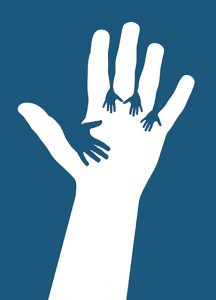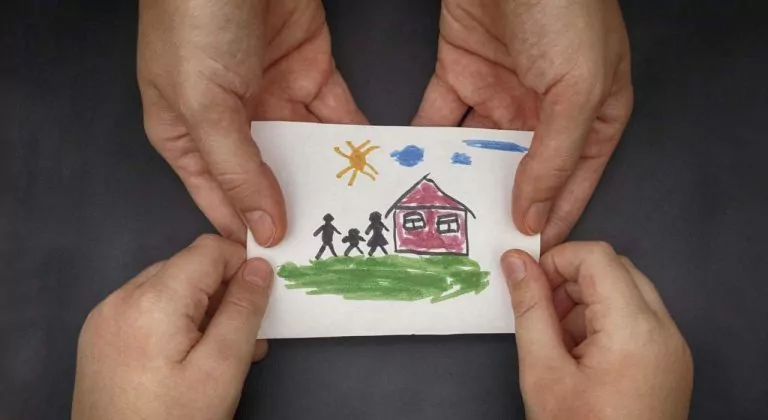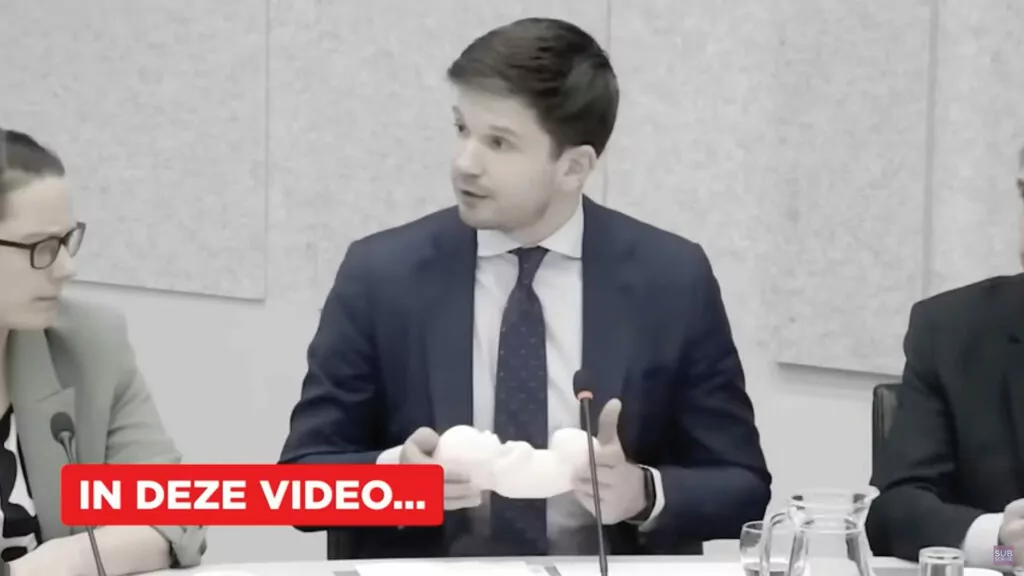Nestled in the sagging seat of her dad’s gigantic green recliner sits a freckled faced 12-year-old girl, with a book almost touching her nose, legs crumpled beneath her, the rhythmic ticking of the wooden family clock above her, all reminiscent of the safe haven of a home she lives in. Yet, for the moment this girl is unaware of her surroundings as she is lost in another world, separated by historical decades. There she sits, the Hiding Place in hand, quixotic with the idea that she too, like Corrie ten Boom, would be a hero of faith. If only she lived during World War II, she would be offering her home to distressed Jews, risking her life for the Lord, enduring prison and suffering with naught a complaint; an altruistic heroine.
Another day, another book: Underground Railroad to Canada. This time the adolescent girl is listening to her mother read about enslaved people moving through a secret network of routes and safe houses to escape slavery and reach the free states in the North. Brave, hospitable mothers opening their homes and children to the dangers of hiding slaves. This girl is enraged at the slaveholders for mistreating human beings and believes wholeheartedly that if she lived during that time period she would be well known for fighting against slavery and running a sanctuary for slaves.
Two different time periods, two different groups of God’s image bearers needing a place of refuge. A community of God’s people bearing the load and caring for their version of the orphan and widow, the distressed and fatherless, who need the basic necessities of life: food, shelter, and safety.
Needs persist today
You might be thinking that it is only natural that Christians would be ready and eager to stand as pillars of faith if some national crisis or war should beset us.
Yet, there is a crisis, here and now, in our very own backyard, caused by the realities of modern life in this post-Christian world. The Underground Railroad, and the Hiding Places, are still needed today for the most vulnerable holders of God’s image: children.
Christians are well aware that abortion is a colossal tragedy happening minute by minute all over our world. Many believers have a well-informed theology and philosophy about the immorality of abortion. Many Christians partake in “walks for life,” donate to their local pregnancy center, and take a stance politically.
Yet, I ask this question: was disagreeing with Hitler about the value of Jews enough?
Was it enough to just not own any slaves in our own households?
No. Our brothers and sisters in the past did not stop at disagreeing, or not participating. They took a step further and welcomed the neglected and suffering people into their very homes, and risked their lives doing so.
Let us be actively pro-life towards the children who are born.
Today’s crisis
Today there are more than 78,000 children in Canada, and 400,000 in the USA in the foster care system. A foster child is someone who is taken out of his or her birth home due to an environment or relationship that is unsafe for the child.
 Our postmodern worldview proclaims that the individual – and his or her every changing idea of relative truth – are the most important pieces of life. The result? A sky-rocketing number of marriages ending in divorce because “this just does not make me happy anymore.” This same thinking has adults turning to drugs, causes gender confusion, and can bring financial strain. And that, in turn, leads to a steady flow of broken families, leaving society’s most vulnerable citizens neglected, abused, and alone. Foster children are among the orphaned, widowed, fatherless, and distressed image bearers who need radical Christian refuge, despite the risks that accompany them.
Our postmodern worldview proclaims that the individual – and his or her every changing idea of relative truth – are the most important pieces of life. The result? A sky-rocketing number of marriages ending in divorce because “this just does not make me happy anymore.” This same thinking has adults turning to drugs, causes gender confusion, and can bring financial strain. And that, in turn, leads to a steady flow of broken families, leaving society’s most vulnerable citizens neglected, abused, and alone. Foster children are among the orphaned, widowed, fatherless, and distressed image bearers who need radical Christian refuge, despite the risks that accompany them.
When a foster child does not have a permanent home – through reunification with birth parents, or legal guardianship, or adoption – then they are placed in a boarding house with other foster youth, called a group home. When they are 18, youth in foster homes or group homes no longer receive these services and they essentially “age-out” of the system.
One California based group, the Alliance for Children’s Rights, shares that in their state over half of the children who “age out” of foster care end up homeless or get incarcerated. That means that thousands of young people are living in office spaces, on the streets, or moving from home to home.
Foster children struggle in school, with relationships, and with self-understanding and worth. As technology is creating ways to study the brain, science is confirming what has been observed for generations: that children cannot develop from one stage to the next without an attachment figure in their life. All it can take is one steady attachment figure and the brain can start to figure out how to continue developing. Unfortunately, when some of these children age-out of the foster care system at the physical age of 18, they may really only be at the developmental age of 12. No one would think that a 12-year-old could live independently, hold a job, or save up for an education. Is it any surprise then that many of the foster youth who age out without an adoptive home get into trouble soon after?
In order to prevent a youth from reaching an age where they follow the trajectory outlined above, they need loving homes and a steady attachment figure at a young age. In Los Angeles alone, there are roughly 30,000 children who need beds from safe families, and only 9,000 registered beds available. Cities across Canada and the USA are dealing with similar issues.
It is a risk
That young starry-eyed girl is now a grown woman and realizes her romantic notions take risk, heartache, and a strong reliance on God’s sovereignty and grace. Risking your life for Jews or slaves, or spending your life helping foster children – these are not easy tasks. Foster care will not bring glory, or make you a hero. In reality, life outside the safe haven of a home is unbearably hard. Welcoming strangers into your home is difficult, and it may take years of heartache before the relational rewards come. Yet, each home is a gift from God and ought to be used to serve his kingdom.
Perhaps you hear a small knocking at your door; you open it to find a young, dirty child who tells you with sweet tears that her mother never comes home and she is lonely, hungry, and in need of another mother. That visual reality would be impossible to ignore and I believe you would want to take this young girl into your home and give her food, shelter, and safety, possibly even love. Let that gentle knocking of urgent need cause you to act immediately, with gracious and radical advocacy.
Foster care and adoption can seem quite intimidating and disruptive to your own family. That is an understandable and reasonable fear. I have a dream that church communities can take on this mission together. A program can be developed where families join together to care for these children. Many families feel that pull in their hearts, and that ache to help, but are overwhelmed by what is required. If each family who does foster care is paired with two other families who will devote themselves to providing a meal and free babysitting once a week, that community support will help those on the fence to commit, and provide others with a task that is equally as important to the process.
My pastor has a dream that if Roe vs. Wade is reversed, every Christian family would adopt one child to show to the watching world that we take seriously the command to welcome the stranger. When a community rises up together with a common goal, the impossible becomes possible.
There are also many options for helping these children if you do not have a home to offer. Below is a list of possibilities:
Foster-to-adopt: If you are clear about your intention to adopt, agencies will place you with children who are least likely to be taken away.
Foster care: To help grow and develop a child as he/she waits for reunification with family members.
Respite care: A service where one family supports another foster family for a short amount of time (one day, or up to a week) as the original family takes time for self-care or family emergencies.
Emergency shelter care: A temporary short-term home for children (1-21 days) as social workers find placement in a more permanent home.
Foster child mentor: Mentorship programs that train individuals to meet once a month with a foster child to build relationships.
Volunteer guilds: Ask your local foster care and adoption agency how you can join a group and help organize events for the foster children (i.e. Get everyone in your office to commit to serving at a meal that raises funds for foster children).
Court-appointed special advocate: Volunteer to be a court advocate for an abused or needy child, with the goal of guiding them out of the foster system.
Conclusion
God chose us out of this world to be adopted into his heavenly family. He paid the greatest price, sending his own son to die on the cross for us, so that we might have eternal life, and have it abundantly.
Will you take up your cross and follow him? If you’d like to join me in this kingdom-dream, I’d love to hear from you via the comments on this website, or you can reach me via the editor.
Jesus said, “Suffer the children to come unto me.” This is one way.
Evelyn Kruis works part-time in a foster and adoption agency and has an MA in Family Counseling. November is National Adoption Month in the United States.
****
Postscript: Do Foster Care Agencies Want Christians?
While it is becoming difficult in some regions for Christians to foster that isn’t the case everywhere.
A significant roadblock that causes agencies to turn away Christians is when the agency tries to dictate what Christians can or cannot teach about morality in their home. This can happen with many issues, but the main one has to do with the LGBTQ community. Agencies turn Christians away because they fear public scorn for supporting someone who is a “bigot” against those who identify as LGBTQ. This happens in both Canada and the United States.
Many agencies do not make rules about what is taught in the home, but just want Christians to mark that they would not reject a child or youth who identifies as LGBTQ. This is a separate issue. Agreeing that you would accept an LGBTQ youth in your home does not come with the requirement of what you need to teach in the home, thus Christians can be consistent with their Christian faith and bring all types of children into a home that teaches a Christ-centered life. For those that plan to foster children under the age of 10, this is rarely even an issue.
One way to avoid these issues is to find a non-profit or Christian foster care and adoption agency.












